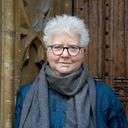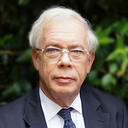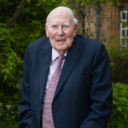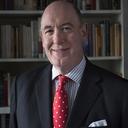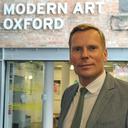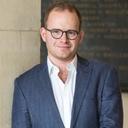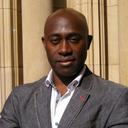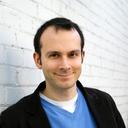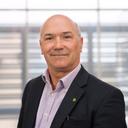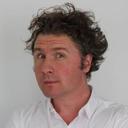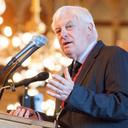ALUMNI STORIES: 'PROUD OF OUR IMPACT AT GREATER CHANGE—OVER 700 LIVES CHANGED'
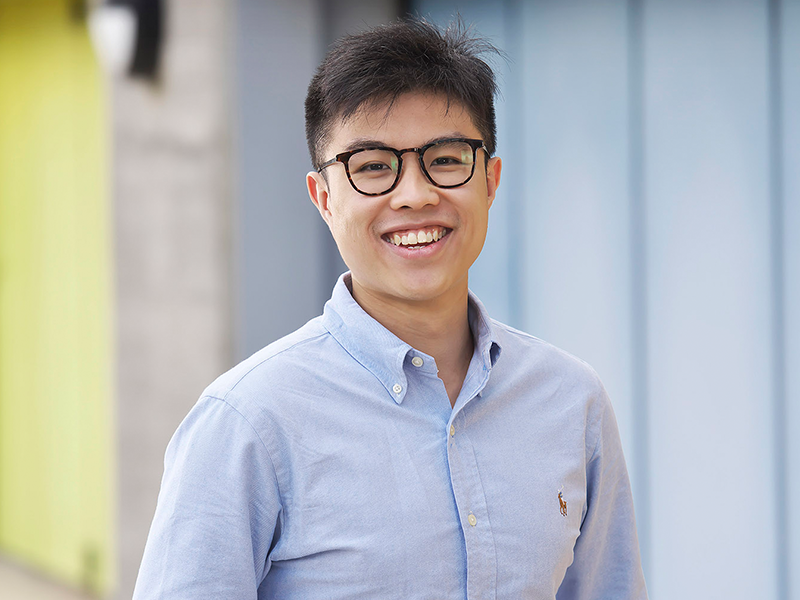
ALUMNI STORIES: 'PROUD OF OUR IMPACT AT GREATER CHANGE—OVER 700 LIVES CHANGED'
Jonathan Tan (Exeter, 2014) talks about his Oxford journey and his inspiration behind building his enterprise, Greater Change
Published: 16 November 2023
Author: Tiya Muluzi
https://www.youtube.com/embed/pEBsoscjGqg?si=uWmhRZ0jYBMakkYQ
Read an extract of the interview below.
What prompted you to apply to Oxford?
Well, it's Oxford, right? I was very, very interested. I was always interested in the subject that I studied, PPE, particularly in Economics, mostly because I felt that was the strongest lever we can pull in our society. It's reflected in the work that I do today, which is to say that we believe that public policy change, good public policy evidence-based, can really dramatically improve lives for lots and lots of people, and vice versa, it can also be incredibly damaging, bad policy. So, I really wanted to apply to Oxford as it's the birthplace of PPE, and it was, and I still believe the best place to study PPE. It was really the subject area that motivated the application to Oxford.
What is your fondest Oxford memory?
A lot of my favourite memories come back down to the time spent rowing with my friends at our College boat club. We weren't very good. I'm about a foot too short to be a proper rower, but we tried very hard and I always enjoyed that. We didn't try to pretend that we wanted to be good, we weren't okay with losing, we were very competitive people and that put us in the end, bang average. I was perfectly happy with that. It was the process of having eight other good friends trying very hard to work towards a common objective together and that was good fun and lots of times getting off the boat completely frozen in winter. Those are my favourite memories.
What do you miss most about Oxford?
The thing I miss the most is having the time to explore things, ideas, academics and explore in a lot of detail. I think that's the thing that I really miss. I think once you leave Oxford, life moves, significantly faster but in a sort of different way. I think in Oxford, things are very intense for the eight weeks, during term time, but I always felt like I had the opportunity. If we're writing an essay for the week, we had a pretty heavy workload, but it was balanced just right, where you could really let yourself go deep dive into a particular topic of interest.
How has Oxford changed you?
I think it gave me the time to explore my interests. The format of the tutorials is fantastic for that purpose, allowed me to find my feet and my friends. I think the reality is that there are a lot of different types of people at Oxford, as I'm sure alumni listening to this will wholeheartedly agree in the sense that it's really a time where you can find your crowd and most people at Oxford are just sort of nerds in their area and that's my crowd. I think it's changed me in that way.
How has your time at Oxford inspired your career?
In terms of my current career and my work at Greater Change, it has inspired some of our strategy and outlook because of how we think about the world. I see homelessness as something that has a huge negative externality to the social fabric. It is first and foremost a really damaging experience for the individual experiencing it, but it also carries with it something quite corrosive to our society.
Oxford city has one of the worst homelessness issues in the UK, despite being a wealthy city. This fact really changed my perspective when I started working and volunteering in the homelessness sector in Oxford. The same streets literally looked different to someone rough sleeping versus a student.
For instance, the same corner that I had a particular memory of on Broad Street, near Exeter, is a completely different experience for someone else and there is a lot of wealth behind those walls. This experience had a very strong emotional impact for me, influencing how I think about what's fair.
What is a social enterprise and how is it different from a charity or not-for-profit?
At one end of the spectrum, there are impact-driven commercial entities like Patagonia, operating more as a company with a social mission attached. On the opposite end, entities like Greater Change resemble charity—our work is the impact, directly aiding individuals in need. The fundamental concept across this spectrum is the voluntary internalisation of externalities. For us, addressing homelessness is asking to provide a public good, overcoming financial barriers. This perspective differs from commercial models where impact isn't inherent but appended. It encompasses a wide spectrum defining what constitutes a social enterprise.
Could you share the inspiration and mission behind your social enterprise, Greater Change?
Greater Change began in 2017 with my co-founder Alex while volunteering at Aspire, an Oxford charity. We questioned the depth of homelessness in the UK, realising it extends beyond rough sleeping to encompass 300,000 individuals, with only 10,000 rough sleeping. Our approach involves offering one-off cash grants to overcome barriers like rent deposits or furnishing issues. Inspired by GiveDirectly's success, we began by assisting 16 people in 2018, now having supported over 750 individuals. Our impact report showed 86% maintained stable housing and nearly half found employment. We aim to expand our influence, striving to make homelessness obsolete by impacting policy and offering tangible solutions.
Can you share a particular success story or project from it?
I'll share two stories— one illustrating success and another, our limitations. In Oxford, we aided a skilled forklift driver lacking certification. After providing courses and obtaining necessary credentials, he secured a job, highlighting the power of flexibility in funding. However, another case involving a prominent rough sleeper showcased the limits of our approach. Despite attempts, including financial aid, his situation remained entrenched. Eventually, a housing first project provided him with unconditional housing, leading to positive progress in his recovery. These narratives underscore the complexities of ending homelessness. While our focus is on financial resilience, our impact relies on the synergy of housing, healthcare, and resilience. These stories highlight both the benefits and limitations of our work.
What are your future goals for Greater Change?
We've supported over 750 people and plan to support another thousand in two years, scaling up to 10,000, 20,000, 30,000, and eventually 40,000 in the next five to ten years. Our goal is to prove the scalability and effectiveness of our approach.
Addressing the cost of living crisis is our larger vision, focusing on public policy change. Endorsing a program akin to ours by the government could impact hundreds of thousands. Ultimately, we aim to influence policy and make our work redundant. Alumni support in this journey is welcomed."
How can alumni get involved with Greater Change?
One of the things about homelessness in the UK is that it's a very stereotyped issue. In terms of practical ways of working with us, if you want to bring us into your workplace to do a lunch and learn session, this could be as simple as that as a starting point. Come and get in touch with us. If you understand PR, public policy and campaigning, we'd love to get in touch. If you work for the press, we'd love to work with you on that point.
What are your top tips for new alumni aspiring to launch a career in social impact?
My biggest tip is not to build up that barrier in your mind. Most of what stops people is purely mental. There are fantastic programs available nowadays, such as incubators and accelerators for social enterprises, along with numerous programs aiding career switches into these areas. It's not an off-the-beaten-track endeavor; it's a well-paved path nowadays. Just do a simple Google search to find these resources. If this is your aspiration, don't perceive it as this great unknown. Begin with a simple search, and I assure you, the path will become clear. It's a well-developed space nowadays, and it will unfold before you.
Which of your projects so far are you most proud of?
I'm very proud of what we've been able to do at Greater Change. We're a small team, and we've changed over 700 lives. That's a significant achievement, and I'm proud that we stuck very strongly and clearly to our evidence-led model. We have done some very high-quality research, and I'm proud of all of that. It comes back down to the fact that there are over 700 people out of homelessness today that, if not for us, I can really say they probably would still be stuck in temporary accommodation somewhere. We've seen some real horror stories, people stuck in temporary accommodation hostels for years and years and years. I'm very grateful for the support we get from Oxford University Innovation as well, and Pippa and Sarah in particular, got to shout them out.
Describe Oxford in one word
I think it has potential. Potential to do good, potential in the ideas and people it has, the resources it has access too.
00:04 What prompted you to apply to Oxford?
00:10 Well I think it's it's Oxford right, so I was very very interested. I was very always very interested in the subject that I studied PPE, in particular on economics mostly because, I felt that, that was the strongest lever we can pull in our society and it kind of is reflected in the work that I do today, which is to say that you know we think that public policy change good public policy evidence-based, can really dramatically improve lives for lots and lots of people and vice versa it can also be incredibly damaging bad policy so I really wanted apply talk so the say is a birth place of PPE you know and it was and I still believe the best place to study PPE so yeah it was really actually the subject area that motivated the application to Oxford.
01:07 What is your fondest Oxford memory?
01:13 I think there are very very many, but I think a lot of my favourite memories come back down to actually the time spent rowing with my friends at our College boat club we weren't very good I'm about a foot too short to be a proper rower really, but we tried very hard and I think that I I always enjoyed that that you know we we didn't try to pretend that you know we we wanted to be good you know we weren't okay with losing right and and we were very very competitive people and as I said that put us in the end sort of bang average and you know I was perfectly happy with that you know it was the process of sort of having you know eight other good friends you know trying very very hard to work towards a common objective together and that was really good fun and you know lots of times getting off the boat you know completely frozen in winter. Those are definitely my my favourite memories.
02:13 What do you miss most about Oxford?
02:15 The thing I miss the most is having the time to to sort of explore things, ideas academics and explore in a lot of detail I think that's the thing that I really miss I think you know once you leave Oxford, life moves I think significantly faster but in a in a sort of different way right I think in Oxford things are very intense for the eight weeks, during term time but I always felt like I had the opportunity to you know if we're writing an essay for the week sure we had a pretty heavy workload, but you know it was balance I think just right where you could really let yourself go deep dive into a particular topic of interest, I think that's probably what I miss the most I think in the real world quote unquote after you know you don't get to spend as much time on things as like.
03:09 How has Oxford changed you?
03:12 Yeah, I think it definitely has, I think it gave me the time to explore my interests you know, I think the format of the tutorials are fantastic for that purpose, I think it allowed me to sort of find my feet find my friends, I think you the reality is that there are a lot of different types of people at Oxford right as I'm sure you know alumni listening to this will sort of wholeheartedly agree in the sense that, you know I think it's really a time where you can you can find your your crowd right and most people at Oxford are just sort of nerds in their area and that's my crowd you know, so yeah I I think it's changed me in that way.
4:00 How has your time at Oxford inspired your career?
04:03 In terms of my current career in terms of what I'm working on at Greater Change, I think it's definitely inspired some of our strategy some of our Outlook because again of just how we think about the world, you know how I see homelessness as something that has a huge negative externality to the social fabric is obviously first and foremost a really damaging experience for the individual experiencing it, but it also carries with it something quite, I think corrosive to our society and I think the way I sort of put that into words you know into what that means in terms of externalities to the public, you know I think definitely has been affected by academic studies there, but I think in different way it was also I think it also affected how I viewed things because you know Oxford city, has one of the worst homelessness issues in the UK, and it's a wealthy City, you know and and I think that really sort of changed my perspective when I started working volunteering in the sector in homelessness in Oxford, where the same streets you know quite literally looked completely different to someone rough sleeping, you know versus a student you know so the same corner that I had a particular memory you know, say on Broad Street right just around the corner from Exeter where I went you know it's a completely different experience for someone else and and there is a lot of wealth behind that those walls and I think that's kind of you know also I think had a very strong sort of emotional impact for me I think on sort of how I think about what's fair.
05:53 What is a social enterprise and how is it different from a charity or not-for-profit?
05:57 I think it's a whole spectrum right is the the the wishy-washy answer, I think it's a I think it's something where you try to run some kind of somewhat commercial activity and then turn that into some social group, but then when you sort of dive into that in a little bit more detail you realise that that definition needs more refinement, you know in the sense that you know you can have on one end of spectrum, a company like Patagonia where you would prob call it a social enterprise I mean it's a b corp and it's obviously very very sort of impact driven commercial organisation, but really at the end of the day it's a company with a sort of environmental mission tagged on to it and then on the other end of the spectrum you get something closer to what Greater Change does which is really it's very very close to charity really and in fact we have a charity entity as a sister entity to what we do, where the work is the impact right so the way we support people with financial planning support and we do the grant cash grants management where we sort of distribute cash grants via our charity partners to people experiencing homelessness, that work itself fundamentally has impact right whereas selling a vest you know like Patagonia does like lots of other clothing companies do doesn't you know fundamentally have an impact they just tag something onto that so it's a real sort of I think a whole spectrum of different things that you can do but I think the underlying sort of uh denominator across all of it is to recognise that we're trying to voluntarily internalise some externality, and what I mean by that is to say you know, we're trying to say that you know when you release carbon into the atmosphere as a in course of doing business there's an externality to the rest of the world that we're not paying the price for, but we are going to voluntarily bring that price into our business model and account for it in some way you know, that's just one example right and in our case at Greater Change you know I think the example there really is to say that you know homelessness is something that is as I said very, very damaging for the social fabric very damaging for the individual now the issue we de we're dealing with here is that it's the person that we're helping generally doesn't have the buying power to sort of overcome financial barriers on the pathway out of homelessness, they don't have the buying power for the product, so what I see as providing is essentially a public good it's no different than you know a construction company building a road right and yeah you know there is a positive externality to this public good that we should try very hard to reach as many people as we can, but you know that's a again a different end of the spectrum isn't it because we basically are a charity with some sort of trading activities uh rather than the other way around but so hopefully that gives you some idea and the the range of what counts as a social enterprise.
09:22 Could you share the inspiration and mission behind your social enterprise, Greater Change?
09:24 So Greater Change was something that I started in 2017 with my co-founder Alex as I mentioned who was at Jesus studying ENM in the same year as I was, and we were inspired by a couple of things really we were working and and sort of volunteering at a local charity called Aspire in Oxford and as you do when you first start getting into the sector you ask some pretty naive questions about homelessness you say okay the UK is the sixth wealthiest country in the world why does homelessness exist to the extent that it does you know or and and and as you dig deeper into it as well you realise that rough sleeping is really just the tip of the iceberg, you know there are 300,000 people is estimated experiencing homelessness in the UK today in any given day and only 10,000 are rough sleeping so of course as we see rough sleeping spiral actually there's a hidden problem that is spiralling even worse right and there are 250,000 people in temporary accommodation so why is that the case as the name implies you know it should be a six to 12 month stepping stone right people should move on quite quickly afterwards and the answers that we got back when you ask the question why is you get some very pretty varied answers so some people will say okay it's rent deposit in first month's rent I found a place that I can afford monthly but I can't put together that lump sum up front you know maybe they've won the jackpot they've been assigned social housing but it's completely bare the floors the flooring has been ripped out you know so they need to put things back in you know there's no fridge freezer there's no washer dryer which is a classic example of a poverty tax right if you don't have a washer dryer you go to a laundromat and you end up paying more money for your laundry very very very quickly so what we do is we provide people with these sort of one-off cash grants to help them overcome these barriers and you know it was inspired by a lot by a very sort of evidence-based cash transfers charity called give directly they're based in the US and primarily start at working in Kenya and now sort of slowly expand it to lots of different parts of the world and you know they release over 300 million USD in cash grants and when Alex and I kind of saw that in 2017 2018 we kind of said well there's no reason to think it wouldn't work just as well as a model if you transferred it to the UK right, addressing relative poverty instead of absolute poverty so that's what we did, we started by helping 16 people in 2018, by providing them with cash grants and the whole idea there was just to say let's just help the first batch of people see how well well it goes and if it goes well you know we'll keep growing it if it doesn't you know that's no big deal you know we just sort of get some learning is out of it shut it down move on. Happily it's gone very well uh to date we've supported over 750 people so far, so last year our impact report found that 86% of the people who supported sustain stable housing 12 months on we know that almost half of them then make it into game for employment as well we know that do a massive impact on their mental physical health on substance use where relevant ex offending reoffending where relevant right so yeah so so we just realised that this is actually very very effective model for unlocking move on and so that's what Greater Change does and what we're trying to do is to try to grow the work and ultimately to I think affect public policy and make ourselves redundant right that's the that's the dream you know, to end homelessness I think it is possible is within reach I think the the motivation for me personally is that sometimes homelessness can feel like something that you know it's it the crisis makes you feel helpless in a very ironic way right like you walk pass and you step over people rough sleeping and you don't stop to help really most of us don't and it's not a statement of judgment it's a statement of fact right in London you have to do that otherwise you never get where you're getting trying to go to you know but I think there something really toxic about that like it sort of makes you turn off your empathy as you go around and it makes you feel well okay you know I can stop and talk to someone I can buy them a sandwich but I deep down we kind of know that that isn't going to fundamentally change their lives, I think that's why we stopped doing it right because it's kind of like well what can I do you know and happily I think great what we're doing at Greater Change is say well this is what you can do you know this is a very very effective way to move people out of homelessness just give them cash just give them access to a personalised budget that we sort of manage with their key worker and and allow them to spend as they wish essentially to help them move out of homelessness with some you know safeguards.
14:13 Can you share a particular success story or project from it?
14:15 I'll share, I'll share two stories, I share one where it worked really well and one where it didn't. So the first case study was uh a were helping in Oxford where he was illegally trained by his employer to be a forklift driver and his employer went bust during lockdown so he couldn't get another job because he even though he was a skilled forklift driver he didn't have an official license, so what we did was we got him some skills courses you know we got him some basic course official lessons got him the certificate and you know after he went he found another job quite quickly and that was sort of quite a happy simple case and then and and I think in many ways it highlights the importance of the flexibility because it basically you know shows that you know we the magic is in not prescribing ahead of time what we think is good for the person but rather asking them what barriers they were facing and funding the grants in that manner right, so I think that's again you know I think very importantly highlights what we've done. I think another example though highlighting the limitation of our theory of change as a man he was quite a prominent rough sleeper in Oxford in the 2010s he was quite entrenched we raised I think around £1.2K for him to try to get him a deposit and move on but really it wasn't really going anywhere and and you know in some ways it shows the safeguards working right because his support worker basically told us not to release the cash at the time you know he had asked us if he could spend the money on a house boat where he would go live with his friend and it was kind of a really dodgy boat it really it wasn't a great situation you know what I mean and he wasn't in a great place he had suffered a lot of personal tragedy as well and that really complicated things you know and that really worsen his substance use disorder as well so there were there were a lot of things happening in his life and it didn't really work and and you know we found after about two years actually of repeatedly trying so we bought him some winter clothes and and that sort of helped tied him over but it wasn't that big step change that we were looking for, in the end it's quite it's a happy ending because in the end he did get support out of homelessness through a housing first project I'm very happy to talk about housing first with anyone who's interested but you know I'd rather not go on the tangent now but it suffice to say that he was provided unconditional housing by a project in Oxford and now he's so of living quite happily he's much better in terms of his recovery but you know we didn't really make the difference there and I think it really sort of highlights the fact that you know for us when you say we want to end homelessness there's a pretty simple formula right there are three things that are required the first is housing supply so is there somewhere suitable to place people, the second pillar is you know health and social care that's simple you know I think health and social care you know with NHS and social care programs I think they're way beyond capacity and I think in many ways they're past broken now you know and it's like any machine when you stuff it you know with too many things you know it stops working properly the third pillar is financial resilience and that's where we act so I think so that when the other two pillars are already in place we can make a real difference in unlocking move on you know the corollary of that is that very often you know when you just have the financial resilience element perhaps you can buy your way into the other two pillars, but you know what really tends to happen is that that doesn't work out very well so there there are a couple of things I can in addition I can say there about the theory of change but hopefully those sort of two case studies going to highlight a little bit about sort of the benefits and the potential as well as the limitations of the work.
18:20 What are your future goals for Greater Change?
18:23 There's a huge ambition so we've supported over 750 people so far as I said so what we want to do going forward is in the next two years we want to support another thousand people, beyond that you know in the next five to 10 years we want to help as quickly as we can we want to hit 10 20 30 40,000 people supported and I think along the way what that will mean is I mean we already have evidence that it works right, I mean what we need to do next is prove that it's scalable and it's practical and then beyond that you know for us the lever that we're trying to pull that will allow us to help the 300,000 people and more you know because you know the cost of living crisis as many people we familiar with I mean you know the office for national statistics uh later stat shows that 42% of households in Britain have fewer than three months savings which is a very scary thought I think um it shows you how many people are on a brink, anyway so we think that public policy lever is the one that we ultimately really want to pull to say that you know if the government is able to fuel and provide this sort of program then you know that really is the end game that really is ultimately the goal and so you know we help a thousand people in the next two years help tens of thousands in the next 5 years to 10 years and then along the way the idea is to try to make ourselves redundant by affecting public policy and so yes if any of the alumni listening to this can support us in that journey we would love to love to have a chat.
20:01 How can alumni get involved with Greater Change?
20:03 I think one of the things about homelessness in the UK is that it's a very stereotyped issue so in terms of very practical ways of working with us you know if you want to bring us into your workplace to do a lunch and learn session could be as simple as that as a starting point you know come get in touch with us you know if you understand PR and public policy and campaigning you know again we love to get in touch if you work for the press you know love to work with you on that point.
20:34 What are your top tips for new alumni aspiring to launch a career in social impact?
20:37 I think my biggest tip is to not is not to big up that barrier in your mind I think most of what stops people is completely mental, like you know it's just a mental barrier, it actually there are fantastic programs out there nowadays lots of sort of incubators accelerators for social enterprises, there are lots and lots of programs for people trying to make a career switch into these areas right that like really really well you know it really isn't a kind of off the beaten track kind of thing where you have to work really hard to sort of hack your way through the jungle it it's actually a pretty well paved path nowadays you just have to go do a simple Google search look for it, so you know if you if that's what you want to do I would say you know don't think of it as this great big unknown, it's not you know just do a simple Google search and start from there and and you know I promise you the path will appear you know it will just show up um because because it's a well developed space
nowadays.
21:44 Which of your projects so far are you most proud of?
21:47 I'm very very proud of what we've been able to do at Greater Change we're very small team and we've changed over as I said over 700 lives you know and I think that's a significant achievement and I think I'm very proud that we stuck very strongly and clearly to our evidence let model we have done some very high quality research I'm proud of all of that I think at the end of the day it comes back down to the fact that you know yeah there are sort of 700 plus people out of homelessness today that you know if not for us I think I can really say you know they probably would still be stuck in temporary accommodation somewhere I mean we've seen some real horror stories you know people stuck in temporary accommodation hostels for years and years and years there was a case in Blackwells 13 years in and out of you know so um so yeah I'm very very proud of that I'm very grateful for the support we get from Oxford University Innovation as well on that and Pippa and Sarah in particular got to shout them out yeah.
22:44 Describe Oxford in one word
22:47 I think it has potential. It's probably my one word, it has a lot of potential there's a lot of potential to do good I think it has a lot of potential in the ideas and people that it has the resources that it has access to yeah.
Find out more about Greater Change in this feature.
Visit the Greater Change website.






